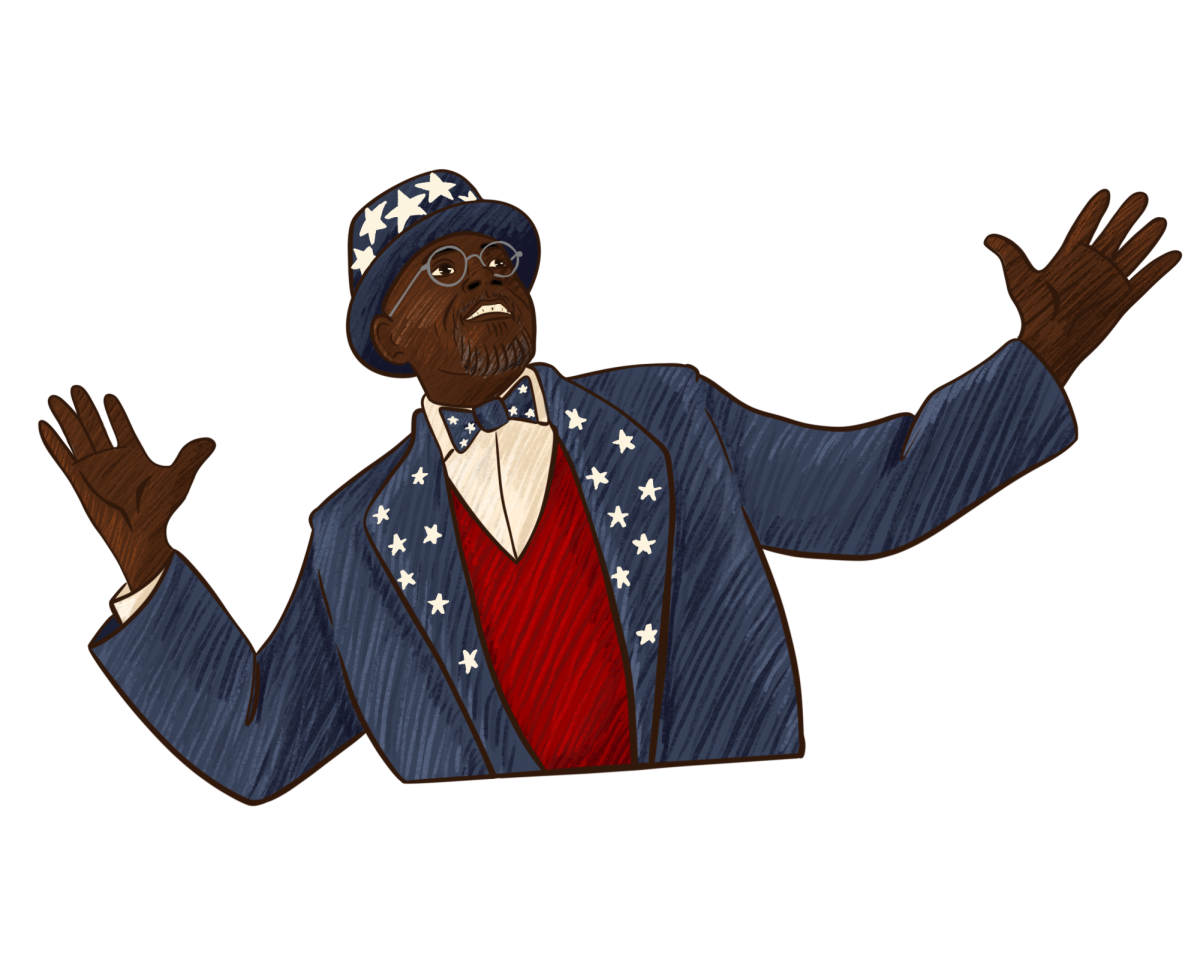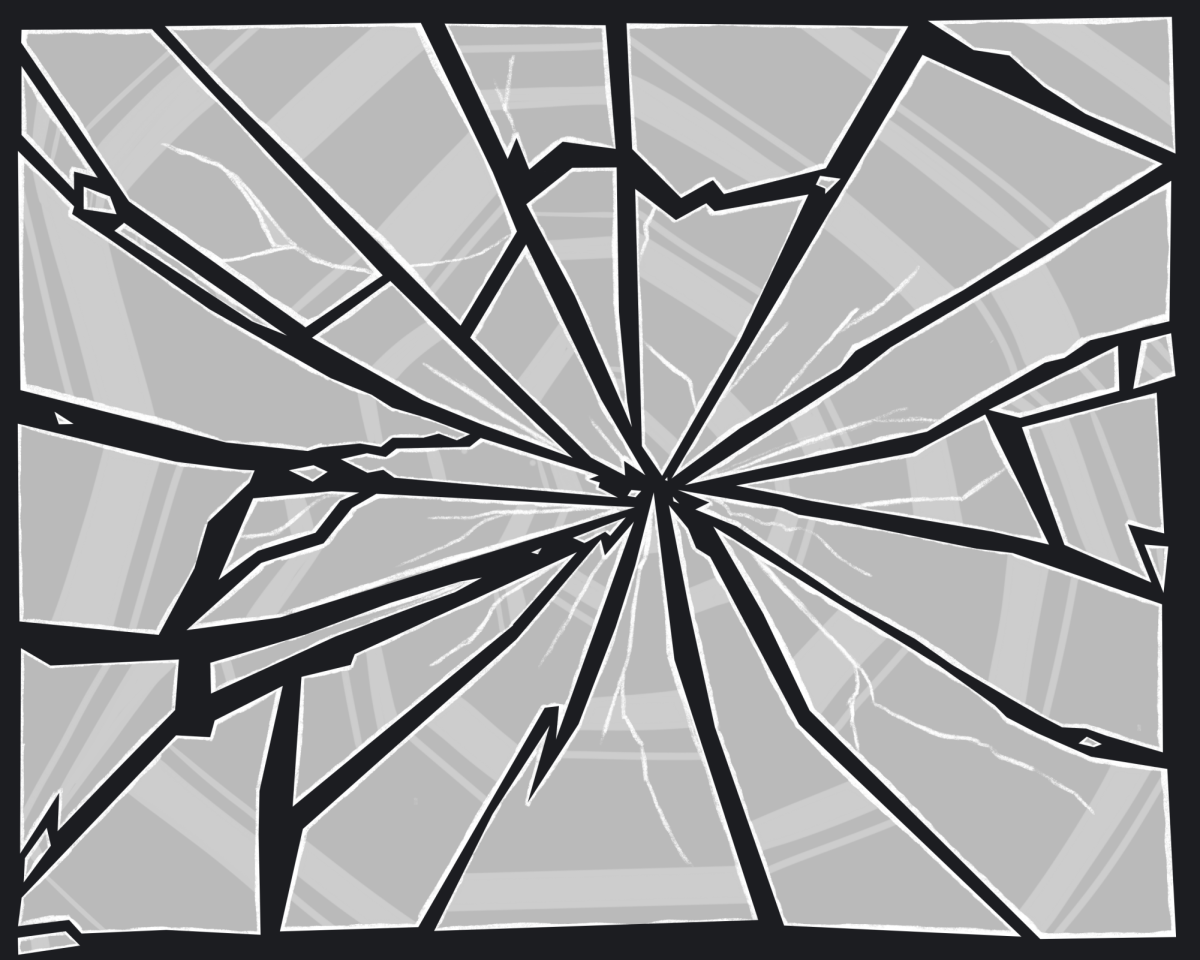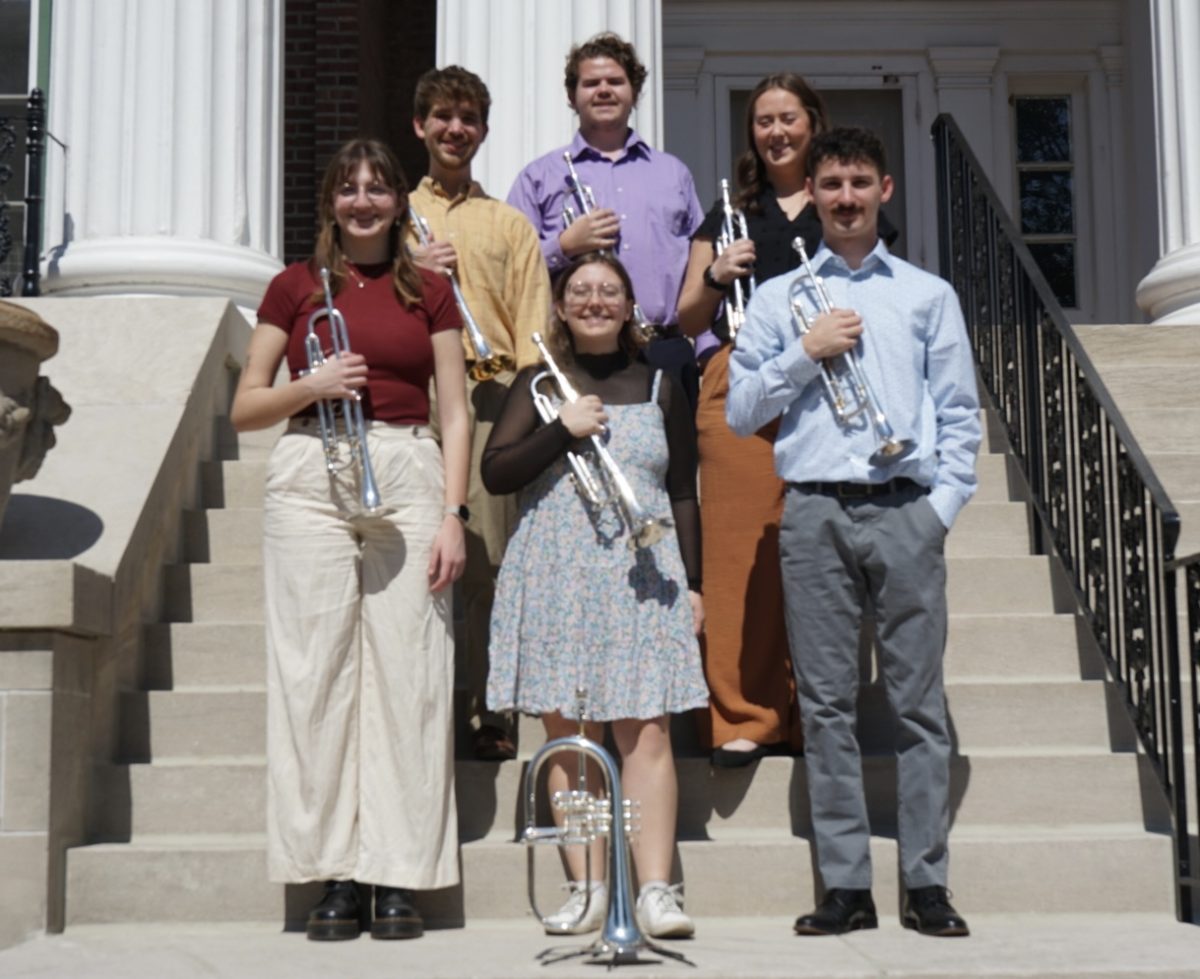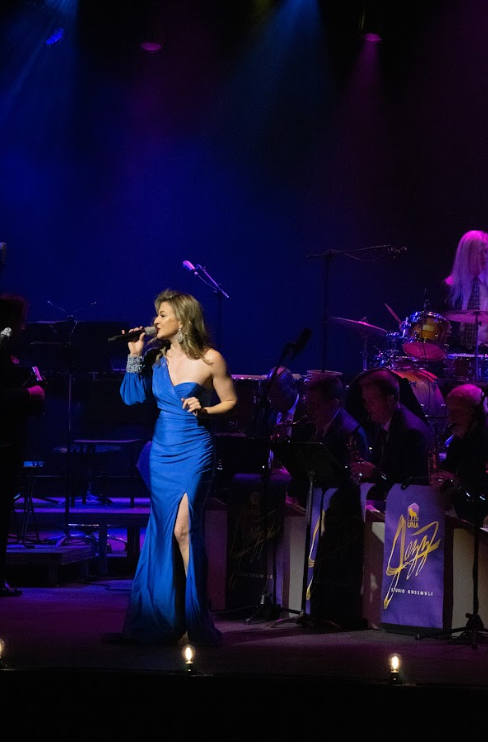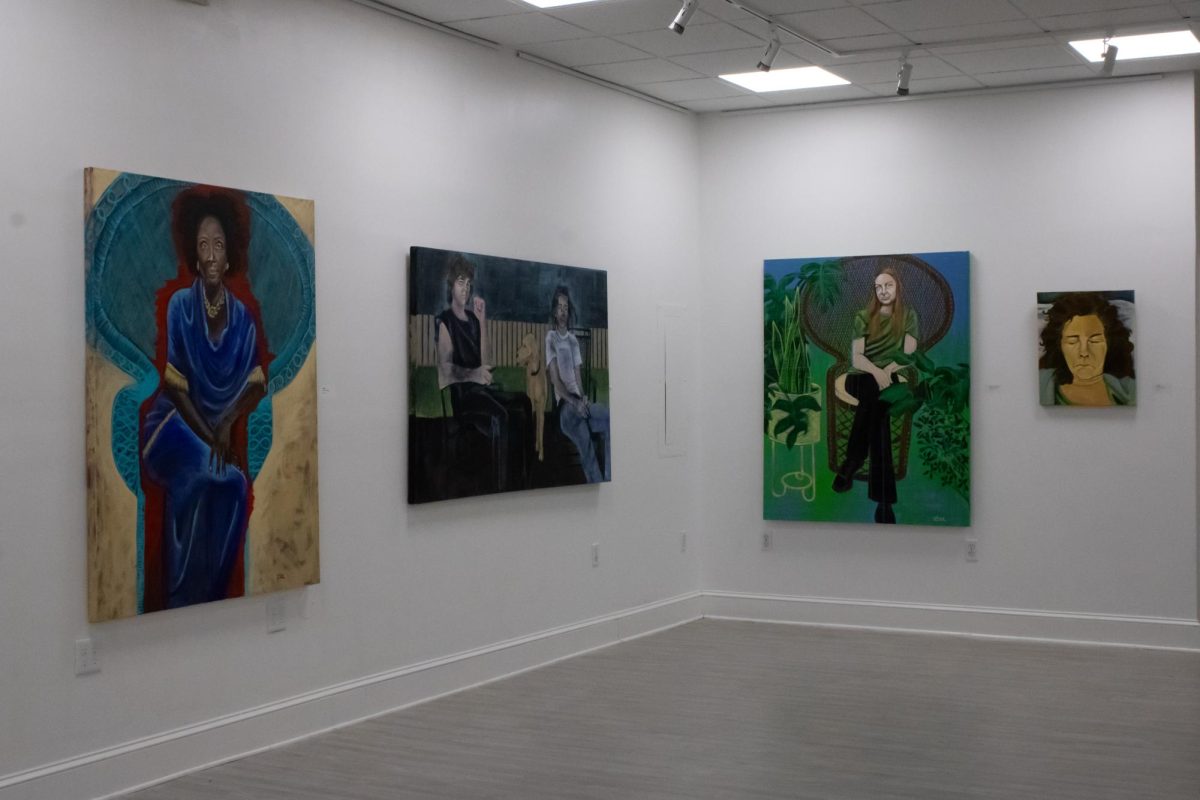The Compton, California native made history on Sunday, Feb. 9 as the first solo rap artist to headline the Super Bowl.
His performance featured a setlist of twelve songs, with guest artist SZA popping up to perform two of their duets. The performance featured other non-musician celebrities like actor Samuel L. Jackson and professional athlete Serena Williams.
Lamar’s performance followed the storyline of a video game.
Jackson, as Uncle Sam, welcomed everyone to the “great American game.” One might think he was talking about football, but many took to social media to explain the symbolism of America in itself being a game.
Not to mention this all happens in front of President Donald J. Trump, as he also made history being the first president to ever attend a super bowl game.
Lamar has never been one to stray away from political statements in his career, using his artistry and his platform to get many messages across to different groups of people.
Alise Boger, sophomore at UNA, voiced her opinions on the performance.
“America is so divided right now, so to see a man of color use his platform to bring people back together, and especially in front of Trump, that was inspiring,” said Boger.
It became clear early on in this halftime show that Lamar had carefully crafted a story to deliver to the American people.
Calana Hurt, president of the NAACP on campus, said, “Lamar’s performance was a direct challenge to the idea of America as an inclusive, fair society. He exposed the illusion of equality and emphasized that Black culture, while globally influential, is still marginalized and policed in America.”
In his first song, “Squabble Up,” Lamar broke to say “The revolution is about to be televised. You picked the right time but the wrong guy.”
Many watchers took to social media to point out how this statement refers to President Trump, who was recently elected by the American people.
Others also noted the significance of Lamar flipping Gil Scott-Heron’s famous line “The revolution will not be televised.” Hurt said that by Lamar “flipping” the original line, he is “warning that while people may see protests and activism on tv, true change requires direct action.”
Lamar’s backup dancers were separated into three colors as he was performing: red, white and blue. These colors have a meticulous relation to America’s three core colors found in the American flag.
At the end of his first song, Uncle Sam popped in to say Lamar is being “too loud,” “too reckless” and “too ghetto.” These words highlight the criticism Black artists often face by others, particularly by the media.
To emphasize this idea of “fitting in” and “conforming,” Uncle Sam asked Lamar if he “really knows how to play the game.” This brings the story back to his metaphor of America being the entire game.
A political organization on Instagram under the handle “usfdems” said, “Uncle Sam’s role represented ‘sanitized’ America, the version of the country that tries to control how Black artists express themselves. His statement that Lamar’s performance was ‘too ghetto’ before being silenced was widely interpreted as a commentary on the ways Black voices are often policed in mainstream spaces.”
Lamar began to perform his hit song, “Humble,” as a rebuttal. His dancers created the American flag, with Lamar actually splitting the flag down the middle.
Hurt said, “The transition into ‘Humble’ with dancers dressed in fragmented American flags illustrated America’s internal racial divisions.”
Lamar teased his Grammy award-winning song “Not Like Us” throughout the entire show. The track is essentially a diss track for fellow rap artist, Drake.
The pair has long had conflict with both of them competing to top the charts. They got into musically related conflict early 2024, when Lamar released a song with a rebuttal to Drake implying that the “big three” in the industry were Lamar, Drake and J-Cole.
Drake and Lamar went on to exchange diss tracks, but Lamar’s “Not Like Us” earned the most streams and support on Spotify, Apple Music, X and Instagram.
The audience highly anticipated Lamar’s performance of the song. People wondered if he was actually going to play it, because Drake had filed a lawsuit over it back in January. In fact, when teasing the song, Lamar said “I want to perform their favorite song, but you know they love to sue.”
He ended this tease by choosing to perform his duets with SZA instead. The pair sang “Luther” and “All the Stars,” with SZA taking center stage for her vocal performance. To show their amazement and appreciation for her, many online recommended she headline the next halftime show.
After the duet, Uncle Sam showed up again to say to Lamar “That’s what America wants. Nice and calm.”
To end the show, Lamar finally performed the long-awaited single “Not Like Us.” This song was evidently what the crowd had been waiting for because watchers at home could clearly hear everyone in attendance rapping alongside Lamar.
Lamar did stray from rapping some of the original lyrics, allowing the audience to belt the words instead. Turns out, this choice was actually to prevent a lawsuit for both the NFL and Fox news.
The Federal Communications Commission “prohibits obscene, indecent, and profane content from being broadcast on the radio or TV.” This explains why many of Lamar’s direct digs were not rapped live during the performance.
The Super Bowl stage presents artists with the opportunity to give out an artful performance to millions of watchers, all at once. Kendrick Lamar took his opportunity to make a political statement to the world.
Lamar referenced historical policies by saying “40 acres and a mule, this is bigger than the music,” which affected the Black community disproportionally after the Civil War. As stated by “usfdems” on Instagram, “40 acres and a mule symbolizes broken promises of racial justice and reparations in the United States.”
The halftime performance was televised to millions of people worldwide. Lamar made a clear message. Hurt said, “Black people must recognize their power, resist oppression and refuse to conform to the rules set by a system designed to control them.”


